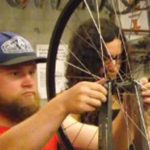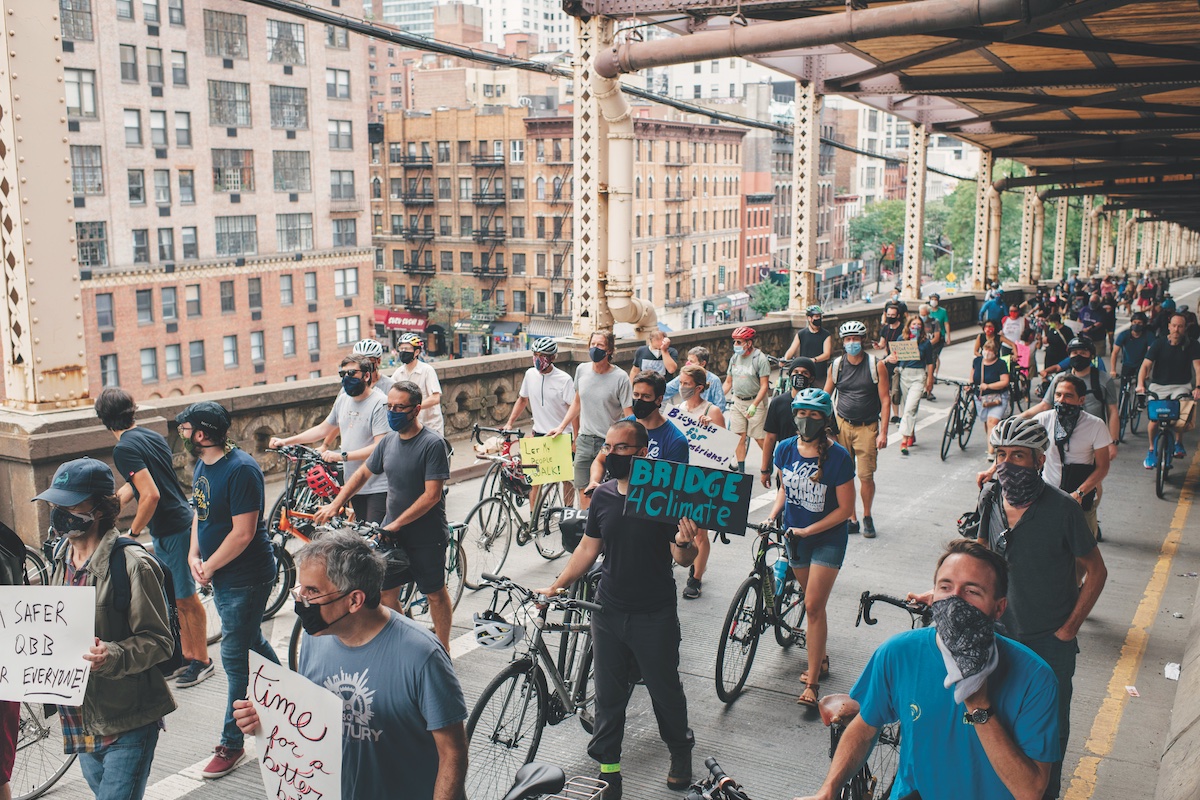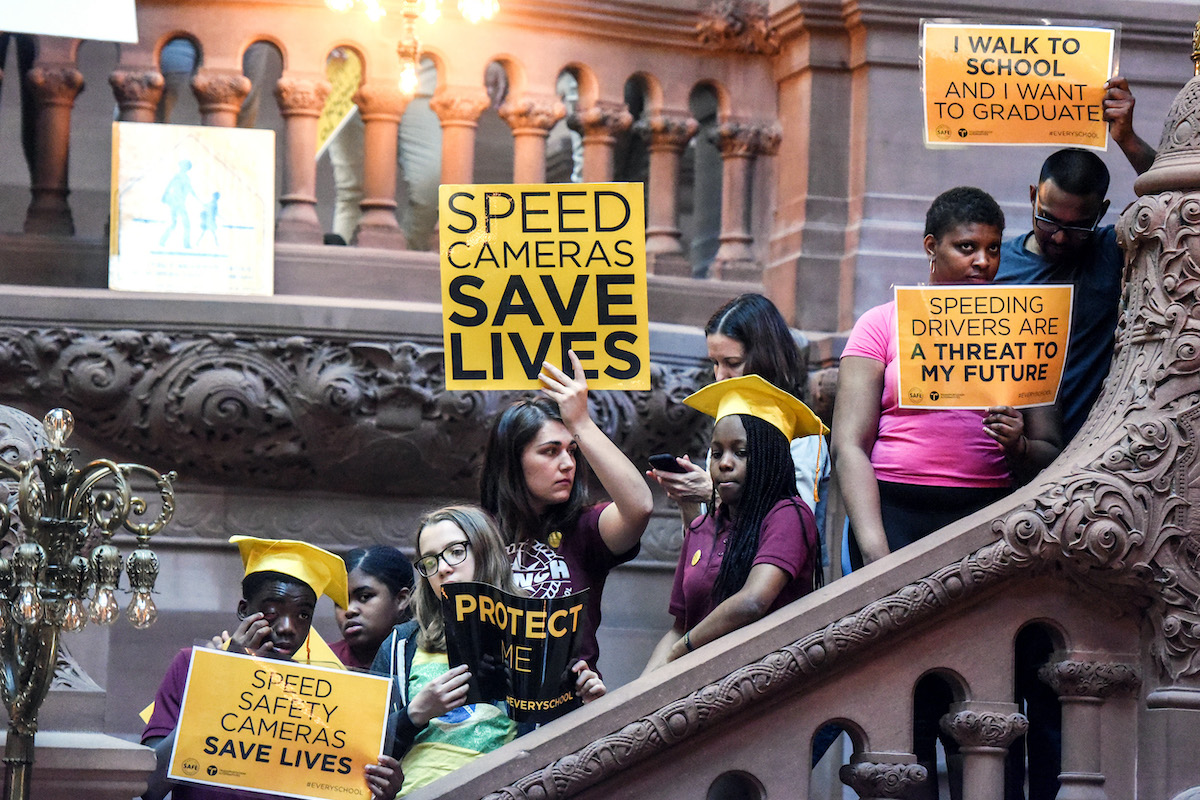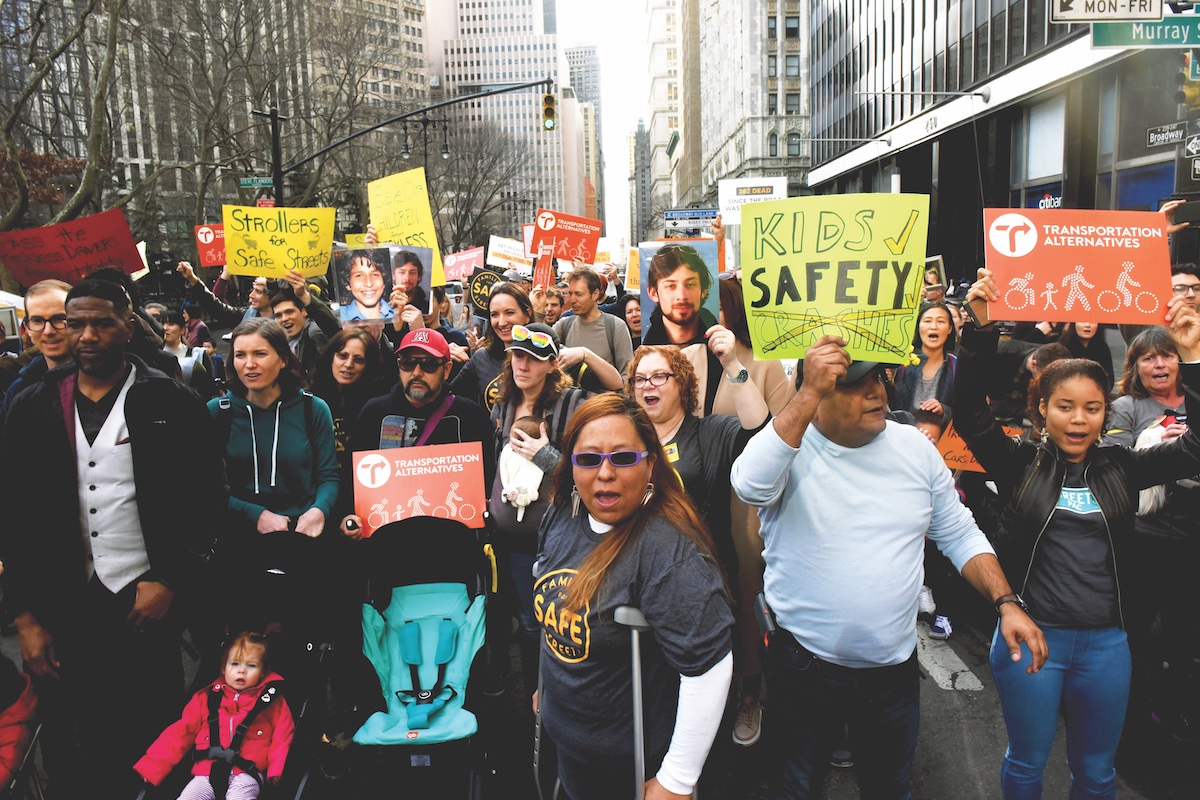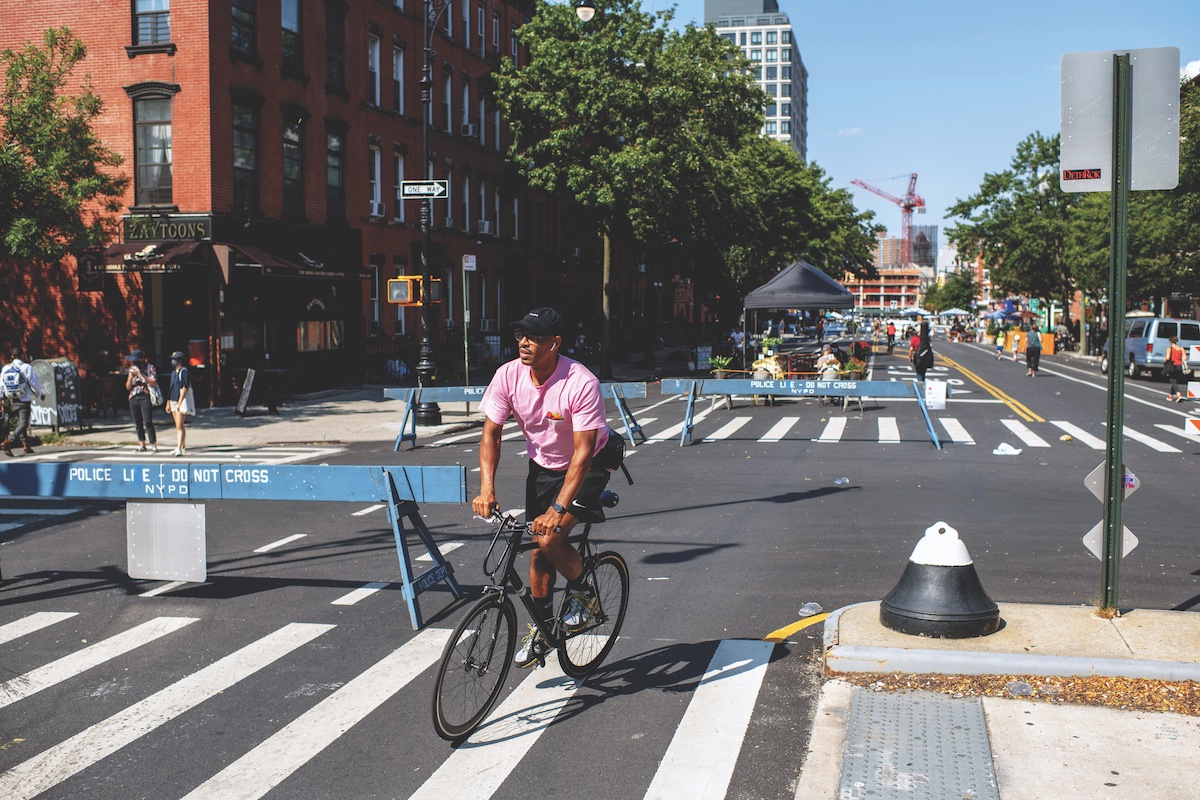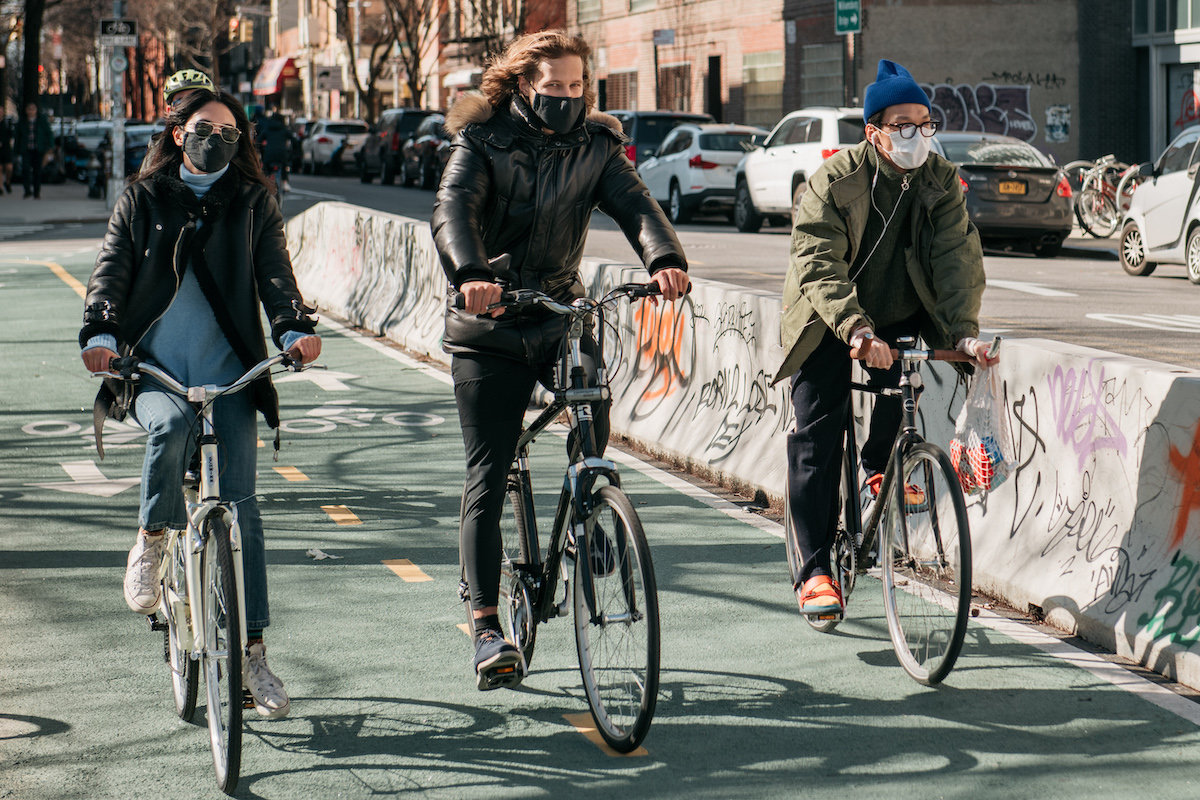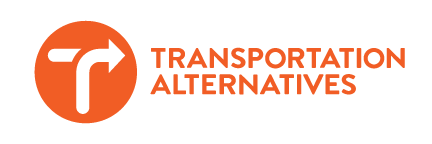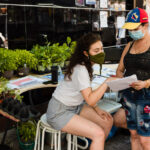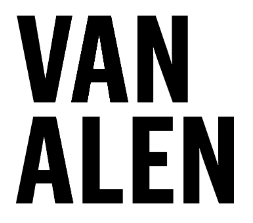Since 1984, Island Press has been a trusted publisher of environmental information.
Rep. Jose Serrano reads from an Island Press op-ed in The Washington Post calling for a return to science-based decisionmaking at the Environmental Protection Agency
Solutions that Inspire Change: Recent Titles from Island Press
Carey Gillam, author of Whitewash: The Story of a Weed Killer, Cancer, and the Corruption of Science (Island Press, 2017) testifies to the European Parliament about the dangers of glyphosate
Steven Higashide, author of Better Buses, Better Cities: How to Plan, Run, and Win the Fight for Effective Transit (Island Press, 2019)
Book launch party for Transit Street Design Guide (Island Press, 2016)

Island Press
2023 - $10,000 Founders’ Pot
2022 - $10,000 Founders’ Pot
2021 - $15,000 Diversity, Equity and Inclusion Work
2021 - $10,000 Founders’ Pot
2020 - $15,000 Online Programming During COVID-19 Pandemic
2020 - $25,000 Founders’ Pot
2019 - $25,000 General Support
2018 - $5,000 Founders’ Pot for General Operating Support
2017 - $5,000 Founders’ Pot for General Operating Support
2017 - $5,000 General Support
2016 - $5,000 General Support
2015 - $5,000 General Support
2014 - $5,000 General Support
2013 - $10,000 Sustainability Knowledge Network
2011 - $5,000 General Support
Island Press supports the environmental community in advancing their knowledge and practice which, ultimately, improves the natural systems on which humankind depends. A non-profit organization, its mission is to provide the best ideas and information to those seeking to understand and protect the environment and create solutions to its complex problems.
From its growing network, Island Press identifies promising thinkers, inspiring stories, and game-changing ideas to publish some 30 books each year. Island Press’ publishing expertise delivers critical information that enhances the work of thousands of professionals striving to create healthier, more sustainable, and more just communities. Today, Island Press is one of the nation's leading providers of environmental ideas and solutions.
Island Press’ goal is to spark lasting solutions to environmental problems. Its approach is two-fold:
Identifying and Developing Ideas
Island Press identifies and shapes the best ideas, methods, and approaches into accessible content. The most valuable lessons come from those who are doing the work—the scientists, activists, and professionals who are leading change every day. But these problem-solvers often need guidance on how to share their experience with others. Without the editorial and communications support Island Press provides, important new voices would be left unheard, and effective approaches unknown.
Promoting and Distributing Content
The field needs cutting-edge information and practical solutions to a wide range of problems. Island Press taps into a distribution network of environmental movement leaders, researchers, policymakers, professionals, and the public. The organization’s reach extends into many areas, ranging from transportation planning and food systems to affordable housing and green space.
Setting this work apart from for-profit publishers, Island Press is committed to providing reliable, science-based knowledge in digital formats—webinars, articles, opinion pieces, and online courses—most of them free.
Island Press has developed a body of environmental literature that is considered by many to be the most comprehensive, rigorous, and innovative available. This work is shaping policies, establishing thought leaders, and advancing influential concepts that have had important real-world impacts.
Notable Accomplishments
Creating Safer Streets for All: Publishing the Urban Street Design Guide guided billions of dollars in infrastructure spending for energy-saving, carbon-reducing public transit and pedestrian-friendly streets across the country.
Reducing Toxic Chemicals: The award-winning Whitewash: The Story of a Weed Killer, Cancer, and the Corruption of Science led to limits on the cancer-causing chemical glyphosate (the main ingredient in Roundup) in several countries, as well as on college campuses and public lands across the U.S.
Regulating Overfishing: The Most Important Fish in the Sea led to the first-ever limits on menhaden fishing, which had reached unsustainable levels. The quota resulted in a 26% reduction in the menhaden catch—a huge victory for fishing communities and conservationists.
Response to COVID-19 Pandemic
As workplaces closed and events were canceled, Island Press moved quickly to create more online offerings for professionals and students who were now working from home. Island Press released a dozen e-books for free and nearly tripled its schedule of free webinars for professionals. As a result, attendance to online trainings more than doubled. This evolving approach helped the organization grow the number of people it serves, and has widened its geographic reach.
islandpress.org
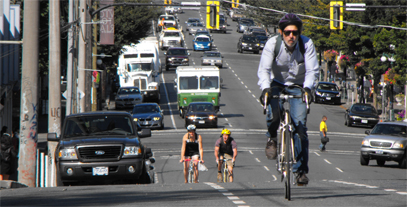
 Alliance for Biking and Walking
2013 - $8,000 Open Streets
2011 - $5,000 General Support
The Alliance for Biking & Walking creates, strengthens, and unites state and local bicycle and pedestrian advocacy organizations in every state, province, and major city in North America. These sustainable organizations are highly respected by the public, media, and policy makers. Their efforts in communities and their united strength at the national level have transformed cities into places where it is easy, safe, desirable and common for citizens to bike and walk.
Open Streets
Open Streets develops a curriculum for a comprehensive three-day open streets training for cities interested in starting or growing initiatives. Open streets (commonly called Ciclovías, Saturday Parkways, Sunday Streets, etc.) differentiate themselves from block parties and street fairs by promoting active living, healthy lifestyle choices and connecting neighborhoods. They are typically part of a broader effort to encourage sustained physical activity, redefine public spaces and increase healthy transportation options. By opening the streets to people, residents view and connect with the community in a whole new way. An exercise in community building and social engagement, open streets also provide free recreational opportunities and public space where people can meet, socialize and make new friends.
peoplepoweredmovement.org
Alliance for Biking and Walking
2013 - $8,000 Open Streets
2011 - $5,000 General Support
The Alliance for Biking & Walking creates, strengthens, and unites state and local bicycle and pedestrian advocacy organizations in every state, province, and major city in North America. These sustainable organizations are highly respected by the public, media, and policy makers. Their efforts in communities and their united strength at the national level have transformed cities into places where it is easy, safe, desirable and common for citizens to bike and walk.
Open Streets
Open Streets develops a curriculum for a comprehensive three-day open streets training for cities interested in starting or growing initiatives. Open streets (commonly called Ciclovías, Saturday Parkways, Sunday Streets, etc.) differentiate themselves from block parties and street fairs by promoting active living, healthy lifestyle choices and connecting neighborhoods. They are typically part of a broader effort to encourage sustained physical activity, redefine public spaces and increase healthy transportation options. By opening the streets to people, residents view and connect with the community in a whole new way. An exercise in community building and social engagement, open streets also provide free recreational opportunities and public space where people can meet, socialize and make new friends.
peoplepoweredmovement.org

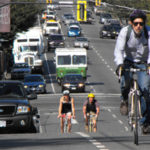
 Amber Hasselbring
2011 Fellow
Amber Hasselbring is a San Francisco artist focused on exploring ecological relationships. Since 2004, she has produced collaborative, project-based works that involve participation by invited and circumstantial audiences. Hasselbring’s Mission Greenbelt Project (2007-present) explores themes of gentrification, education and urban ecology through performances and garden building efforts in San Francisco. The project is an ongoing urban earthwork of sidewalk gardens, planted with California native and other drought-tolerant plants. The gardens attract wildlife, relieve the city’s overburdened water treatment system and encourage volunteerism and cooperation. The proposed route connects Mission District parks and open spaces.
Amber Hasselbring
2011 Fellow
Amber Hasselbring is a San Francisco artist focused on exploring ecological relationships. Since 2004, she has produced collaborative, project-based works that involve participation by invited and circumstantial audiences. Hasselbring’s Mission Greenbelt Project (2007-present) explores themes of gentrification, education and urban ecology through performances and garden building efforts in San Francisco. The project is an ongoing urban earthwork of sidewalk gardens, planted with California native and other drought-tolerant plants. The gardens attract wildlife, relieve the city’s overburdened water treatment system and encourage volunteerism and cooperation. The proposed route connects Mission District parks and open spaces. David Gissen
2011 Fellow
David Gissen is an historian and theorist of architecture and urbanism. His recent work focuses on developing a novel concept of nature in architectural thought and developing experimental forms of architectural historical practice.
Gissen is the author of the book Subnature: Architecture's Other Environments (Princeton Architectural Press, 2009), editor of the “Territory” issue of AD Journal (2010), and editor of the book Big and Green (Princeton Architectural Press, 2003). He recently completed the manuscript "Manhattmospheres" an environmental and architectural history of New York City in the 1970s.
David Gissen
2011 Fellow
David Gissen is an historian and theorist of architecture and urbanism. His recent work focuses on developing a novel concept of nature in architectural thought and developing experimental forms of architectural historical practice.
Gissen is the author of the book Subnature: Architecture's Other Environments (Princeton Architectural Press, 2009), editor of the “Territory” issue of AD Journal (2010), and editor of the book Big and Green (Princeton Architectural Press, 2003). He recently completed the manuscript "Manhattmospheres" an environmental and architectural history of New York City in the 1970s.
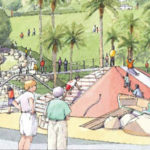

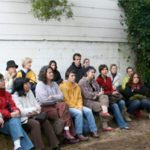

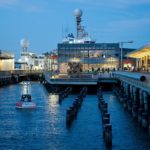

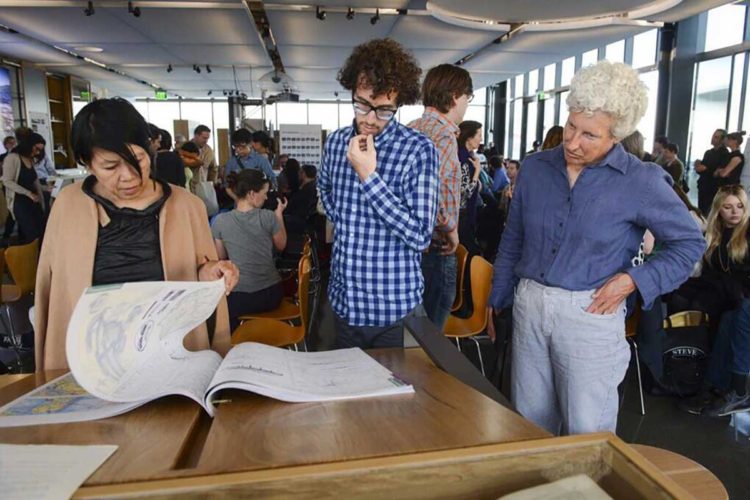

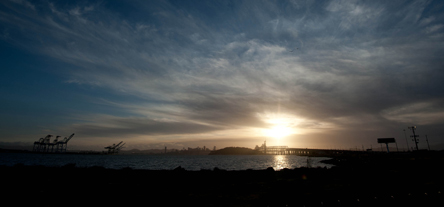 Friends of the Gateway
2011 - $7,500 General Support
Friends of The Gateway (FOG) is a community of artists and innovators championing the creation of a unique public space at the foot of the new Bay Bridge. Using the arts as the organizing principle, the Gateway Park envisioned will integrate engineering, infrastructure, landscape, economic and community development, creating a vibrant regional asset and an international destination.Gateway Park will be located at the touchdown point of eastern span of the Bay Bridge, on the Oakland side, and will encompass at least between 35 and 150 acres.
FOG envisions a public space akin to Millennium Park in Chicago or Landschaftspark in Germany, with a comparable economic and social impact, using the arts and the industrial arts movement as the central themes. The East Bay is the international epicenter for a major industrial arts movement, and our hope is that the Gateway will both celebrate this and capitalize upon it. FOG’s vision will seek to integrate human-scaled, social and economic activities into this context using the arts as an engaging vehicle, while creating a vital, vibrant Bay Area arts destination that attracts a local and international audience; explores the relationships between place, structure and creative innovation; and celebrates the remarkable new span of the Bay Bridge.
Friends of the Gateway
2011 - $7,500 General Support
Friends of The Gateway (FOG) is a community of artists and innovators championing the creation of a unique public space at the foot of the new Bay Bridge. Using the arts as the organizing principle, the Gateway Park envisioned will integrate engineering, infrastructure, landscape, economic and community development, creating a vibrant regional asset and an international destination.Gateway Park will be located at the touchdown point of eastern span of the Bay Bridge, on the Oakland side, and will encompass at least between 35 and 150 acres.
FOG envisions a public space akin to Millennium Park in Chicago or Landschaftspark in Germany, with a comparable economic and social impact, using the arts and the industrial arts movement as the central themes. The East Bay is the international epicenter for a major industrial arts movement, and our hope is that the Gateway will both celebrate this and capitalize upon it. FOG’s vision will seek to integrate human-scaled, social and economic activities into this context using the arts as an engaging vehicle, while creating a vital, vibrant Bay Area arts destination that attracts a local and international audience; explores the relationships between place, structure and creative innovation; and celebrates the remarkable new span of the Bay Bridge.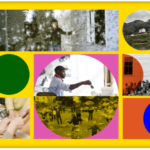

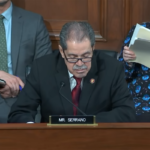

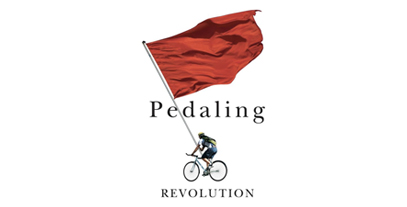 Jeff Mapes
2011 Fellow
Jeff Mapes is the author of Pedaling Revolution: How Cyclists are Changing American Cities (Oregon State University Press, 2009) which describes the growing urban bike culture that is changing the look and feel of U.S. cities.
Mapes, a seasoned political journalist and long-time bike commuter, explores the growth of bicycle advocacy while covering such issues as the environmental, safety, and health aspects of bicycling for short urban trips. Chapters set in Chicago and Portland show how bicycling has became a political act, with seemingly dozens of subcultures, and how cyclists - with the encouragement of local officials - are seizing streets back from motorists. Bike activists are creating the future of how we travel and live in twenty-first-century cities.
Jeff Mapes
2011 Fellow
Jeff Mapes is the author of Pedaling Revolution: How Cyclists are Changing American Cities (Oregon State University Press, 2009) which describes the growing urban bike culture that is changing the look and feel of U.S. cities.
Mapes, a seasoned political journalist and long-time bike commuter, explores the growth of bicycle advocacy while covering such issues as the environmental, safety, and health aspects of bicycling for short urban trips. Chapters set in Chicago and Portland show how bicycling has became a political act, with seemingly dozens of subcultures, and how cyclists - with the encouragement of local officials - are seizing streets back from motorists. Bike activists are creating the future of how we travel and live in twenty-first-century cities.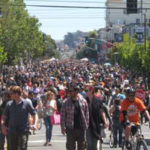

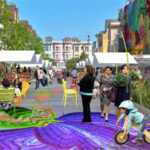
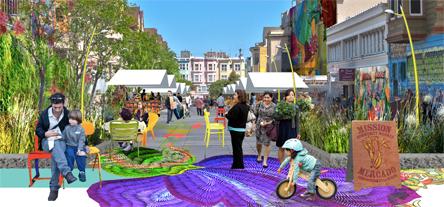 Mission Community Market
2011 - $10,000 Mercado Plaza
Rebar and the Mission Community Market (MCM) have formed a partnership to create a new car-free plaza and public space on Bartlett Street in the Mission. Building on the place-making efforts of the MCM, the new plaza will provide a beautiful, safe and much needed public space for activities that support family health, promote small businesses and bring diverse communities together.Building on the MCM’s place-making activities, the Mercado Plaza will bring diverse communities together through the civic design process, entrepreneurial opportunity and public space design. The goal for the car-free plaza is to create a true public marketplace and flexible urban space. It will accommodate large gatherings, like MCM, as well as smaller neighborhood activities and play. The concept is a programmable plaza surface with temporary infrastructure such as market stall supports, shading, seating and a stage. Flexible street furniture, vendor stalls and utility hookups can reduce the barriers for diverse entrepreneurs to enter the marketplace as well as an upgrade to the ecological infrastructure of the street by implementing stormwater best management practices - permeable pavers, rain gardens and potentially subsurface infiltration. Unique paving, safer lighting, and a Mission mural arts gallery that has already begun on Bartlett will attract local shoppers, tourists and neighborhood families.
Mission Community Market
2011 - $10,000 Mercado Plaza
Rebar and the Mission Community Market (MCM) have formed a partnership to create a new car-free plaza and public space on Bartlett Street in the Mission. Building on the place-making efforts of the MCM, the new plaza will provide a beautiful, safe and much needed public space for activities that support family health, promote small businesses and bring diverse communities together.Building on the MCM’s place-making activities, the Mercado Plaza will bring diverse communities together through the civic design process, entrepreneurial opportunity and public space design. The goal for the car-free plaza is to create a true public marketplace and flexible urban space. It will accommodate large gatherings, like MCM, as well as smaller neighborhood activities and play. The concept is a programmable plaza surface with temporary infrastructure such as market stall supports, shading, seating and a stage. Flexible street furniture, vendor stalls and utility hookups can reduce the barriers for diverse entrepreneurs to enter the marketplace as well as an upgrade to the ecological infrastructure of the street by implementing stormwater best management practices - permeable pavers, rain gardens and potentially subsurface infiltration. Unique paving, safer lighting, and a Mission mural arts gallery that has already begun on Bartlett will attract local shoppers, tourists and neighborhood families.
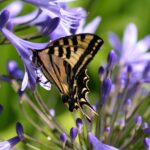
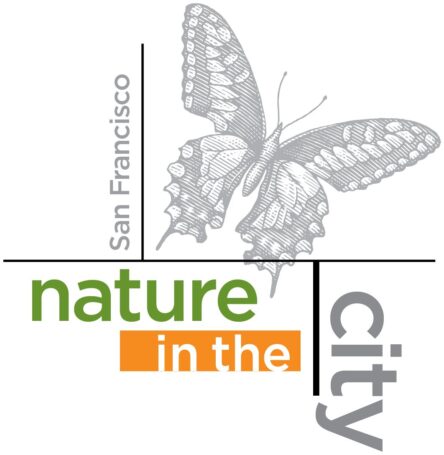
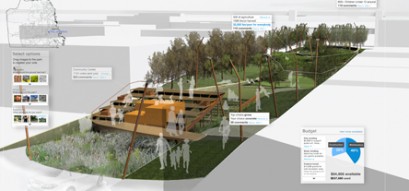 Nicholas de Monchaux
2011 Fellow
Nicholas de Monchaux is an architect and urbanist, whose work examines the intersections between nature, technology and the city. Currently assistant professor of Architecture and Urban Design at UC Berkeley, he has recently authored Spacesuit: Fashioning Apollo (published by the MIT press).
His project Local Code: Real Estates used geospatial analysis to identify thousands of publicly owned abandoned sites in major US cities - imagining this distributed, vacant landscape as a new urban system. Using parametric design, a landscape proposal for each site is tailored to local conditions, optimizing thermal and hydrological performance to enhance the whole city’s ecology—and relieving burdens on existing infrastructure. Local Code’s quantifiable effects on energy usage and stormwater remediation eradicate the need for more expensive, yet invisible, sewer and electrical upgrades. In addition, the project uses citizen participation to conceive a new, more public infrastructure as well —a robust network of urban greenways with tangible benefits to the health and safety of every citizen. Local Code was recently exhibited at SPUR and was a finalist in the WPA 2.0 competition sponsored by UCLA Citylab and appeared at the 2010 Biennial of the Americas.
Nicholas de Monchaux
2011 Fellow
Nicholas de Monchaux is an architect and urbanist, whose work examines the intersections between nature, technology and the city. Currently assistant professor of Architecture and Urban Design at UC Berkeley, he has recently authored Spacesuit: Fashioning Apollo (published by the MIT press).
His project Local Code: Real Estates used geospatial analysis to identify thousands of publicly owned abandoned sites in major US cities - imagining this distributed, vacant landscape as a new urban system. Using parametric design, a landscape proposal for each site is tailored to local conditions, optimizing thermal and hydrological performance to enhance the whole city’s ecology—and relieving burdens on existing infrastructure. Local Code’s quantifiable effects on energy usage and stormwater remediation eradicate the need for more expensive, yet invisible, sewer and electrical upgrades. In addition, the project uses citizen participation to conceive a new, more public infrastructure as well —a robust network of urban greenways with tangible benefits to the health and safety of every citizen. Local Code was recently exhibited at SPUR and was a finalist in the WPA 2.0 competition sponsored by UCLA Citylab and appeared at the 2010 Biennial of the Americas.

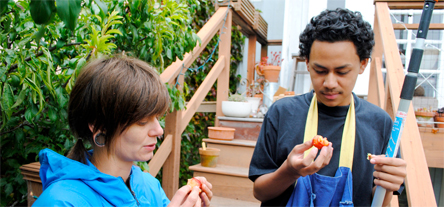 Produce to the People
2011 - $3,000 General Support
Produce to the People (PttP) is a grassroots, community food organization in San Francisco, founded in June 2009. PttP aims to localize the food system by utilizing and celebrating the unused resources in San Francisco, including fruit trees, vacant lots, and people power.
PttP’s work is rooted in outreach to under served communities, providing healthy, organic, local food for people who may not always have access to it, supporting garden projects in communities that may not have the funds to create or sustain them on their own, and providing educational jobs to youth with barriers to employment. They work to link these elements together; the growth, harvest, and dispersal of food, in conjunction with the collaboration of other organizations, neighbors, patrons of food programs, and young people, creates a full circle that links people coming from diverse life experiences and unites them over a common need for healthy food and community based care for one another.
Produce to the People
2011 - $3,000 General Support
Produce to the People (PttP) is a grassroots, community food organization in San Francisco, founded in June 2009. PttP aims to localize the food system by utilizing and celebrating the unused resources in San Francisco, including fruit trees, vacant lots, and people power.
PttP’s work is rooted in outreach to under served communities, providing healthy, organic, local food for people who may not always have access to it, supporting garden projects in communities that may not have the funds to create or sustain them on their own, and providing educational jobs to youth with barriers to employment. They work to link these elements together; the growth, harvest, and dispersal of food, in conjunction with the collaboration of other organizations, neighbors, patrons of food programs, and young people, creates a full circle that links people coming from diverse life experiences and unites them over a common need for healthy food and community based care for one another.
 Rosten Woo
2011 Fellow
Rosten Woo is an artist, designer and writer living in Los Angeles. He makes work that helps people understand complex systems and participate in group decision-making. His work has been exhibited at the Cooper-Hewitt Design Triennial, the New Museum, the Venice Architecture Biennale, Netherlands Architectural Institute, the Lower East Side Tenement Museum; and in various public housing developments, tugboats, shopping malls and parks in New York City and Los Angeles. His first book, Street Valuewas published by Princeton Architectural Press in 2010.
He is co-founder and former executive director of the Center for Urban Pedagogy (CUP), a nonprofit organization that uses design and art to improve civic engagement. CUP projects demystify the urban policy and planning issues that impact communities so that more individuals can better participate in shaping them.
Rosten Woo
2011 Fellow
Rosten Woo is an artist, designer and writer living in Los Angeles. He makes work that helps people understand complex systems and participate in group decision-making. His work has been exhibited at the Cooper-Hewitt Design Triennial, the New Museum, the Venice Architecture Biennale, Netherlands Architectural Institute, the Lower East Side Tenement Museum; and in various public housing developments, tugboats, shopping malls and parks in New York City and Los Angeles. His first book, Street Valuewas published by Princeton Architectural Press in 2010.
He is co-founder and former executive director of the Center for Urban Pedagogy (CUP), a nonprofit organization that uses design and art to improve civic engagement. CUP projects demystify the urban policy and planning issues that impact communities so that more individuals can better participate in shaping them.
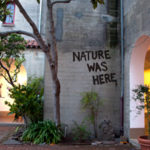







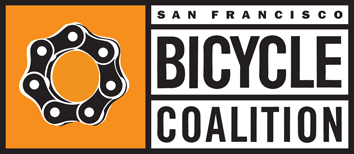
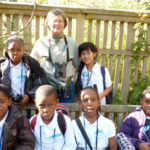
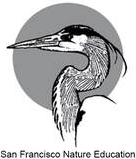
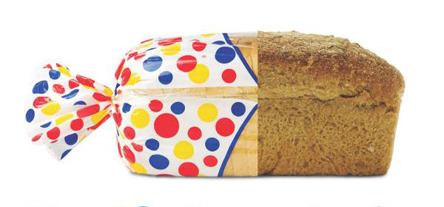 Sandor Katz
2011 Fellow
Sandor Katz is the author of The Revolution Will Not be Microwaved: Inside America's Underground Food Movements (Chelsea Green Publishing, 2006) This book is about food activism and people trying to make better choices – people wanting to create better food alternatives for themselves and the people in the communities around them.Katz urges people to challenge their roles as unquestioning consumers of the American food industry. His message is to use everyday ingredients to be a producer and not just consumer of food – and not just ordinary food – but some of the most vibrantly flavorful and health giving foods imaginable. His critique of mega production and celebration of the alternatives empowers people to feel like they can make and cultivate their own food – whatever their circumstances. His long held belief in community gardens, community supported agriculture and community kitchens has inspired many and been an integral part in the underground food movement.
Katz is also the author of The Art of Fermentation: An In-depth Exploration of Essential Concepts and Processes from Around the World (Chelsea Green Publishing, 2012) and Wild Fermentation: The Flavor, Nutrition, and Craft of Live-Culture Foods (Chelsea Green Publishing, 2003). He travels widely teaching people simple fermentation techniques and demystify home fermentation. He has taught hundreds of hands-on fermentation workshops around the US and Australia.
Sandor Katz
2011 Fellow
Sandor Katz is the author of The Revolution Will Not be Microwaved: Inside America's Underground Food Movements (Chelsea Green Publishing, 2006) This book is about food activism and people trying to make better choices – people wanting to create better food alternatives for themselves and the people in the communities around them.Katz urges people to challenge their roles as unquestioning consumers of the American food industry. His message is to use everyday ingredients to be a producer and not just consumer of food – and not just ordinary food – but some of the most vibrantly flavorful and health giving foods imaginable. His critique of mega production and celebration of the alternatives empowers people to feel like they can make and cultivate their own food – whatever their circumstances. His long held belief in community gardens, community supported agriculture and community kitchens has inspired many and been an integral part in the underground food movement.
Katz is also the author of The Art of Fermentation: An In-depth Exploration of Essential Concepts and Processes from Around the World (Chelsea Green Publishing, 2012) and Wild Fermentation: The Flavor, Nutrition, and Craft of Live-Culture Foods (Chelsea Green Publishing, 2003). He travels widely teaching people simple fermentation techniques and demystify home fermentation. He has taught hundreds of hands-on fermentation workshops around the US and Australia.
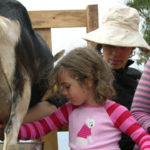
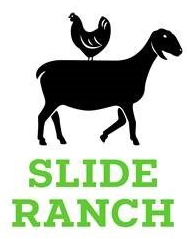
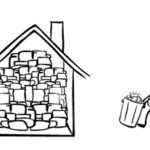
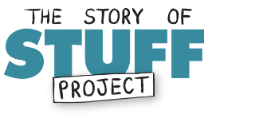
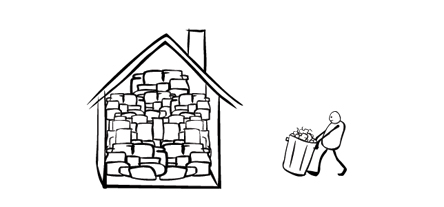


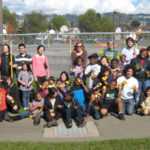
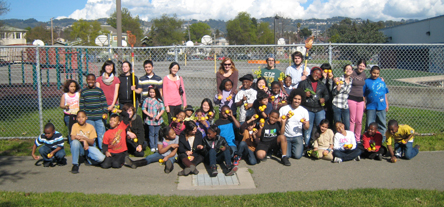 Suzanne Cockrell, Engage Class at California College of the Arts
2011 - $1,125 Garden at Emerson Elemenary School, Oakland
This grant was used to fund the design and building of a small orchard and pollinator garden at Emerson K-5 Public Elementary School located in Oakland’s Temescal District. The orchard and garden are a community project which was part of an undergraduate Community Arts/Diversity Studies course at California College of the Arts (CCA). The CCA students led by artist, Suzanne Cockrell, mentored thirty five 4th graders to plan and implement a garden for the school community. Students germinated seeds for the pollinator garden, learned the botanical parts of a fruit tree and how fruit grows, foraged and tasted fruit from neighborhood trees, and helped sheet mulch and plant the orchard in their schoolyard. The project developed a culture of stewardship for the orchard and through special assemblies, curriculum and harvest celebrations. The students and school families will nurture and care for their orchard over time.
Suzanne Cockrell, Engage Class at California College of the Arts
2011 - $1,125 Garden at Emerson Elemenary School, Oakland
This grant was used to fund the design and building of a small orchard and pollinator garden at Emerson K-5 Public Elementary School located in Oakland’s Temescal District. The orchard and garden are a community project which was part of an undergraduate Community Arts/Diversity Studies course at California College of the Arts (CCA). The CCA students led by artist, Suzanne Cockrell, mentored thirty five 4th graders to plan and implement a garden for the school community. Students germinated seeds for the pollinator garden, learned the botanical parts of a fruit tree and how fruit grows, foraged and tasted fruit from neighborhood trees, and helped sheet mulch and plant the orchard in their schoolyard. The project developed a culture of stewardship for the orchard and through special assemblies, curriculum and harvest celebrations. The students and school families will nurture and care for their orchard over time.